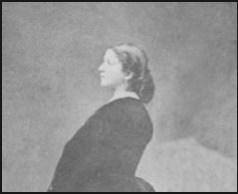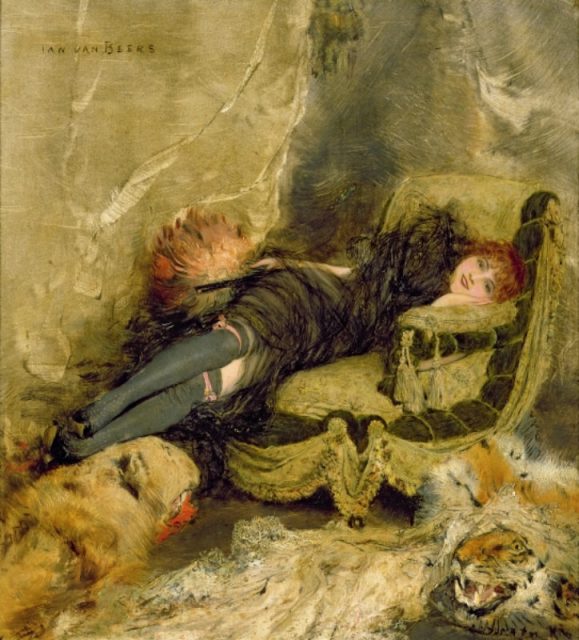George Bernard Shaw said, “Life isn’t about finding yourself. Life is about creating yourself.” They also say that hell hath no fury like a woman scorned, and both of those things were certainly true of Jeanne Bricourt.
Some people are driven by a deep need to reinvent their life; Bricourt (sometimes called Brécourt) had that, combined with a ruthless lack of compassion for others in the pursuit of her aim.

Bricourt was born in Paris in 1837 and was the neglected child of working-class parents. A baroness who felt sorry for her took her under patronage for a while, before her parents removed her from the baroness’s care when she was 11, so she could work, according to author Geri Walton.
When Bricourt reached adulthood, the baroness helped her find a job in a silk-making factory. All went smoothly until Bricourt decided it was time to marry. After a teasing suggestion from her patroness, Bricourt married a local grocer in 1855.

The marriage was very unhappy, and after a while the grocer disappeared. Shortly thereafter, Bricourt also left, becoming the mistress of a military officer. When she reappeared on the scene, shortly after her husband had died in a charity hospital, she had tried and failed at several occupations, and became a courtesan, treating men as playthings and a means of support.
Bricourt admitted to not liking men, and she claimed to only love her sister. She said that she wanted men to suffer
“All is dust and lies. So much the worse for the men who get in my way. Men are mere stepping-stones to me. As soon as they begin to fail or are played out, I put them scornfully aside. Society is a vast chess-board, men the pawns, some white, some black; I move them as I please, and break them when they bore me.”

One of her lovers died of a drug overdose, another by suicide, and a third died in the hospital after she cut him off. All were presumed victims of her blackmail and malice.
During this same period of time, her own health began to suffer, and she checked herself into an asylum for several months for treatment, claiming that she was a woman of gentle birth.
On her release, she left Paris for Vittel, and began calling herself a baroness. By now she was in her thirties and worried that her ability to attract wealthy lovers was becoming compromised by her increasing age.

She soon met a younger man named Rene de la Roche, who was attractive, wealthy, and vulnerable. Several months after their first meeting, they became lovers. They were together for several years, and Jeanne’s future was looking increasingly secure, although she worried his family might require him to marry a younger, more suitable woman.
After visiting with a woman she knew, who was caring for a wealthy disabled man, Jeanne Bricourt conceived of the idea of having her lover become seriously and permanently injured. She would then become his caretaker, and her future would be secured. Further, his injuries would make him a less eligible marriage match for other women.

She worked out a plan, and recruited a friend from her childhood who was in love her, to help her carry it out. She obtained a bottle of sulfuric acid, and instructed her friend to dash it into de la Roche’s face, blinding the young man. Her confederate was appalled, but agreed to do it, because he was hoping that she would fall in love with him.
One night Bricourt and her lover were returning to her home after a ball, and her accomplice leapt from hiding and fulfilled his task, blinding the young man in one eye and damaging the other, then ran off into the night.

She took her injured lover into her home, and proceeded to take over his care with devotion, while keeping his friends and family at a safe distance. No one suspected her involvement in the attack, until she decided she wanted to move them to Italy.
His family became suspicious, and contacted the police. Despite hearing from de la Roche that he was happy and well looked-after, the police officer who met with him remained suspicious and began a quiet investigation.

Eventually her home was searched and evidence of her involvement was uncovered, including evidence that linked her to her accomplice. She was subsequently arrested and imprisoned. Her co-conspiritor was found, and a search of his house unearthed evidence that implicated them both. He was arrested, as well.
Between the overwhelming evidence against them, and the avid and widespread curiosity of the public, the trial was quick and conclusive. Both Bricourt and her friend were convicted. She received 15 years in penal servitude, and her accomplice was given a 10 year prison sentence.
One summary of her actions said, “There is something almost sadistic in the combination of her character of erotic sensibility with extreme cruelty.”
Read another story from us: Christopher Lee – The Man Who Embodied Dracula
Indeed, Jeanne Bricourt behaved monstrously in her search for a better life.
